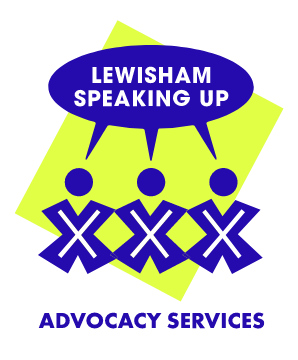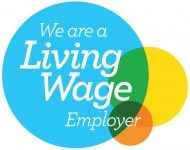Privacy Notice for Beneficiaries, Friends, Partners and Stakeholders
Last updated September 2020
Chair of Trustees: Michelle Stanistreet – Director: Will Davies
PDF version of the policy
Lewisham Speaking Up (LSU) respects the privacy of all the people we support, as well as our friends, partners and stakeholders. We understand the importance of keeping your personal information safe and secure.
We will comply with data protection law that says that the personal
information we hold about you must be:
- Used lawfully, fairly and in a transparent way.
- Collected only for valid purposes that we have clearly explained to you and not used in any way that is incompatible with those purposes.
- Relevant to the purposes we have told you about and limited only to those purposes.
- Accurate and kept up to date.
- Kept only as long as necessary for the purposes we have told you about.
- Kept securely.
1) What information does Lewisham Speaking Up keep about me?
a) 1-2-1 Advocacy
In order to help you benefit from our 1-2-1 Advocacy Project we require the following information about you:
-
- name
- address
- telephone number
- email address (if you have one)
- information about your learning disability and any other physical or medical needs you might have
- gender
- date of birth
- ethnic group
- reasons for why you need help from an advocate
- whether anything about you poses a risk to one of our paid staff volunteers or students.
In order to help you with your specific issue, we might need other information about you. We will only collect this if there is a clear reason for collecting it. Other information might include your:
-
- national insurance number
- bank account details (account number, branch details, bank transactions)
- entitlement to benefits
- home circumstances
- financial situation
- any support you get
For an Advocate to help you, they will need to keep records about how they are helping you. These records will be stored securely and will not be shared without your permission.
b) Self-Advocacy Projects (People’s Parliament, Big Group, smaller self-advocacy groups and training projects)
If you want to attend one of our Self-Advocacy groups or events, we need to collect the following information about you:
-
- name
- address
- telephone number
- email address (if you have one)
- information about your learning disability and any other physical or medical needs you might have
- gender
- date of birth
- ethnic group
We need to keep these details so we can let you know about our groups and events and make it possible for you to take part in our events.
c) Professionals, friends, partners, other organisations/agencies, stakeholders
If you are helping someone who is getting support from us through 1-2-1 advocacy, we may store your name and contact details with the person’s case notes. These will be stored securely on Charity Log and will not be shared without your knowledge and permission.
We will keep your information only to tell you about news or activities or to contact you about a person with a learning disability we are helping. We will keep the following details about you:
-
- name
- organisation or agency’s name
- details about your role (job title/department)
- address
- email address
- telephone number
d) Information we give to our funders
We need to give other information to our funders called special categories of personal information. This is so they can continue to fund our projects. These categories are about ethnic origin, sexual orientation, health or religion or belief. We will not give your personal details to our funders.
This information is optional and you can decide if you want to give us such information. You will not be treated differently because of your decision.
e) Other non-essential Information
Some information we may ask for is not essential to the services we provide but will help us in accommodating you and your needs. You do not need to give us information if you do not want to. However, it may mean that the Charity is unable to make special arrangements for you, e.g. ensuring your dietary requirements are met.
Note: You can ask to see the information we keep about you at any time. We will remove your details if you tell us you do not want us to keep it in anymore.
2. How do you use my information to keep me up to date with Lewisham Speaking Up’s news and activities?
We will only use your data to give you news about Lewisham Speaking Up or to tell you about our groups and activities that we think you might want to attend. We might do this by post, email, or by using an external provider such as Mailchimp.
3. How do we store personal data?
We store personal data electronically and in paper form. Electronic records are all held in secure servers with strong password protection. Paper records are held securely in our office in locked cabinets.
- The primary electronic systems we use to process your personal information is called Charity Log.
- Emails, documents, spreadsheets, recording and images are held on local devices or cloud-based servers.
4. Who has access to my personal data?
LSU staff, volunteers and students will be granted access to your personal information only where it is necessary for them to carry out their duties as employees, volunteers and students. This information is stored on a database system called Charity Log. All trustees, staff, volunteers and students are given training in data protection and are required to comply with our internal data protection policy.
5. Do you share my information with third parties?
We do not sell or trade your information with any third parties. The only external provider we work with is Mailchimp. Mailchimp is only used to send you our email newsletter. You can view their privacy policy here.
If you are a person with a learning disability, the only time we might share your information without getting your permission, is if we think:
- you or somebody else might be at risk of being harmed, or
- a crime is about to happen.
We have a duty to tell a representative at Lewisham Social Care and Information Team. If we think a crime has happened or is about to happen, we may have to tell the Police. We will still tell you if we have to do this.
We will not disclose your personal information to any other third party unless we believe that disclosure is necessary to confirm to legal requirements, to protect our rights or to protect the safety of people using Lewisham Speaking Up services.
6. Photography and recordings
LSU may use images and visual and audio recordings for administrative purposes such as minute-keeping at meetings; to promote our services e.g. on our website and social media platforms; recording groups and events e.g. the People’s Parliament; and inform the public about specific issues directly impacting on our organisation.
No images or visual and audio recordings of our trustees, staff, beneficiaries, volunteers, students, friends and stakeholders will be taken or used without their consent. We will inform you about:
- the purpose for the use of the image or visual and audio recording.
- the platform it will be used on, e.g. our website
Where it is not possible to get your written consent, for example during government regulated lockdown periods, we will ask for your verbal consent, which will be noted and filed on the appropriate filing system. Images and recordings will be transferred to our filing systems as soon as is practicable and kept securely. You have the right to request that images and recordings of yourself be deleted from our filing systems.
7. Social Media
To promote our work and educate the public, we might at times ask beneficiaries to share their experiences on social media platforms like Facebook, Twitter, Instagram, or YouTube. They will never be asked to reveal or share their personal information. You do not have to give your consent.
8. How long do you keep my data for?
LSU will only retain your personal information for as long as is necessary for us to use your information as described above and to comply with our legal, health and safety, accounting and reporting obligations. This is usually for a maximum of six years.
This means that we may keep some of your information after you cease to use our services. For instance, we may retain your personal information as necessary to meet our obligations as mentioned above.
In some circumstances we may anonymise your personal information so that it no longer allows you to be identified. In this case, we may keep such information for a longer period.
9. Your rights
You have the right to:
- access and obtain a copy of your data on request;
- require the organisation to change incorrect or incomplete data;
- require the organisation to delete or stop processing your data, for example where the data is no longer necessary for the purposes of processing; and
- object to the processing of your data where the organisation is relying on its legitimate interests as the legal ground for processing.
If you would like to exercise any of these rights, please contact us. If you believe that the organisation has not complied with your data protection rights, you can complain to the Information Commissioner.
If you have any further questions, please contact us.
Approved by LSU Board of Trustees on 22nd September 2020












